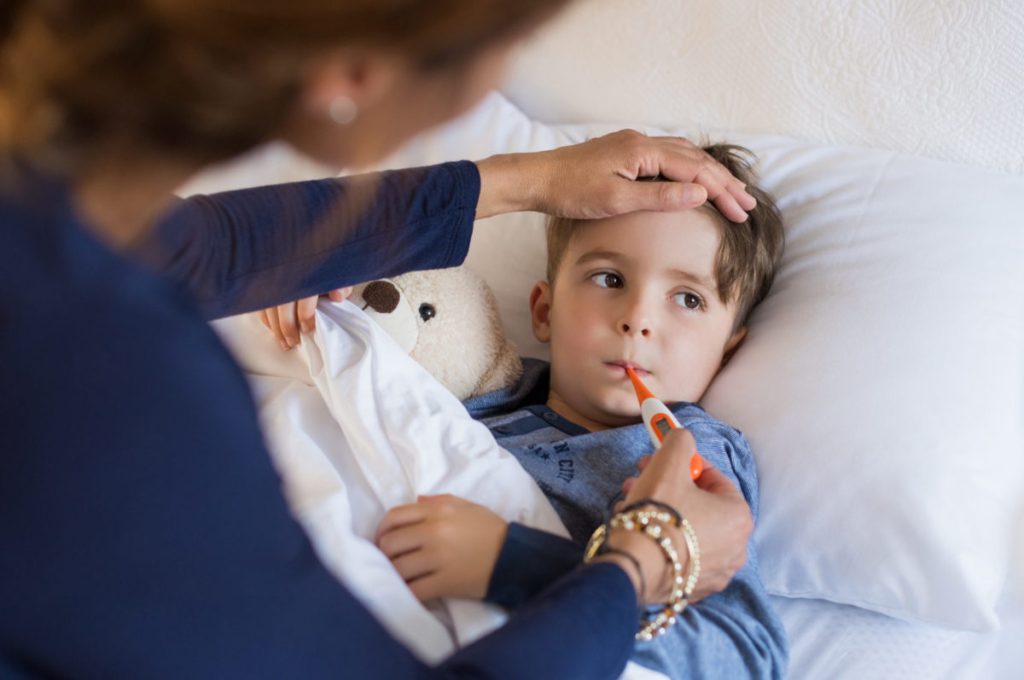As parents, we want nothing more than to keep our children healthy and protected. However, children are prone to various illnesses, especially during their early years.
In this in-depth manual, we will delve into effective strategies to prevent and treat common childhood illnesses, ensuring the health and happiness of your young children.
There are steps that can be taken at home to promote a healthy environment for your children, although it is important to consult a healthcare professional for an accurate diagnosis and treatment.
Building Strong Immunity
A robust immune system is crucial in fighting off infections and illnesses. Here are some practical tips to boost your child’s immune system naturally:
- Encourage a balanced diet: To ensure that your child is getting all of the necessary nutrients, offer them a wide variety of fruits, vegetables, lean proteins, and whole grains.
- Promote physical activity: Engage your child in regular exercise and outdoor play to strengthen their immunity.
- Prioritise sleep: Sufficient rest is vital for immune health. Establish a consistent bedtime routine and ensure your child gets the recommended hours of sleep.
- Good hygiene practices: Teach your child proper handwashing techniques, covering their mouth and nose while sneezing or coughing, and avoiding sharing personal items with others.
Vaccinations
Vaccinations are a cornerstone of preventive healthcare. By adhering to the recommended immunization schedule, you can protect your child from a range of potentially dangerous diseases.
Consult your healthcare provider or visit your local pharmacy to ensure your child receives all the necessary vaccines.
Common Childhood Illnesses and Their Prevention
Cold and Flu
It is essential to perform routine disinfection on surfaces that are utilised on a regular basis.
Teach your child the value of practising proper hand hygiene and demonstrate to them how to properly cover their nostrils and mouths when they cough or wheeze by using tissues or their elbow. This will help avoid spreading germs.
Always remember to get your child vaccinated against the flu, as it can be life-threatening.
Gastrointestinal Infections
Encourage people to wash their hands both before meals and after using the bathroom. Make sure food is cooked and stored in the appropriate manner. Instil in your kids the value of not sharing their food or drinks with other people.
Ear Infections
While it’s crucial to consult a healthcare professional before giving any medication to your child, there are certain over-the-counter (OTC) remedies that can provide relief from common childhood illnesses.
Your local pharmacy should be able to guide you towards over-the-counter remedies that are suitable for your child’s age as well as the symptoms they are experiencing. Keep in mind that you should always follow the instructions for the recommended dosage.
When to Seek Medical Attention
As parents, it’s essential to recognise when your child’s symptoms require medical attention. If your child experiences severe symptoms such as high fever, difficulty breathing, persistent vomiting or a significant change in behaviour, consult a healthcare professional immediately.
Conclusion
By implementing these preventive strategies, you can significantly reduce the risk of common childhood illnesses and ensure your child’s well-being. Remember to foster good hygiene habits, prioritise vaccinations and provide a healthy environment for your little ones.
While pharmacies can offer valuable advice and over-the-counter remedies, always consult a healthcare professional for an accurate diagnosis and treatment.
With your dedication and care, you can empower your child to lead a healthy and happy life.
